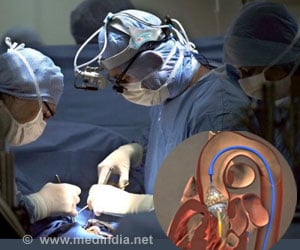Australia is finalising an assessment method for the accreditation of medical specialists from abroad, but many fear it could slow down or even block the placement of much-needed doctors.
Australia is finalising an assessment method for the accreditation of medical specialists from abroad, but many fear it could slow down or even block the placement of much-needed doctors and other health professionals in the country.
Australian Health Minister Tony Abbott has given his support to a national scheme for the accreditation despite a new study that has cast doubts on the plan. Many of the specialists are Indians.Australian state and territory health ministers will meet in December to hammer out a process of assessing overseas trained doctors.
The study, published in the People and Place journal, found that while there had been some progress in the scheme, there was no immediate prospect for it to go ahead.
The problem lay in the fact that the new scheme could slow down or block the placement of much-needed doctors and other experts in Australia.
The standard of overseas-trained doctors has come under the scanner following the case of India-trained US doctor Jayant Patel, whose practice at a Queensland hospital two years ago resulted in the death of at least 17 patients.
"We have seen from what happened with Patel that when overseas-trained doctors have not been assessed and have ended up in a position of responsibility, there can be real problems," report co-author Bob Birrell told the Herald Sun daily.
Advertisement
The India-born surgeon has also been accused of fraud for allegedly falsifying his application to practice medicine in Australia, by removing any mention of his previous tarnished record in the US.
Advertisement
Due to concerns over his work, he was restricted from carrying out certain types of operations - such as liver and pancreatic surgeries - in the US.
Later, Patel's US medical licence was terminated.
"There are no hard rules in place to ensure the quality of these doctors is up to the local standard," Birrell added.
Abbott said he was committed to seeing the new scheme - covering the accreditation of hospital doctors and medical specialists - put in place by 2008.
"Cutbacks under the federal government had produced a 'medical workforce crisis'," a federal opposition health spokesperson was quoted by news.com.au as saying.
This had created pressure to bring in overseas-trained doctors even if they didn't meet Australian standards, she said.
"It is always possible there are doctors slipping through who do not meet Australian standards," she said.
Overseas-trained doctors working in Australia are normally assessed by the Australian Medical College (AMC), which determines whether they are eligible to be assessed by the relevant college.
Increasingly, however, state medical boards have given the doctors accreditation under "area of need" provisions without AMC assessment.
According to Queensland Health Minister Stephen Robertson, authorities had rejected 1,800 applications from overseas-trained doctors in the past year after the Patel scandal.
Source-IANS
SRM





